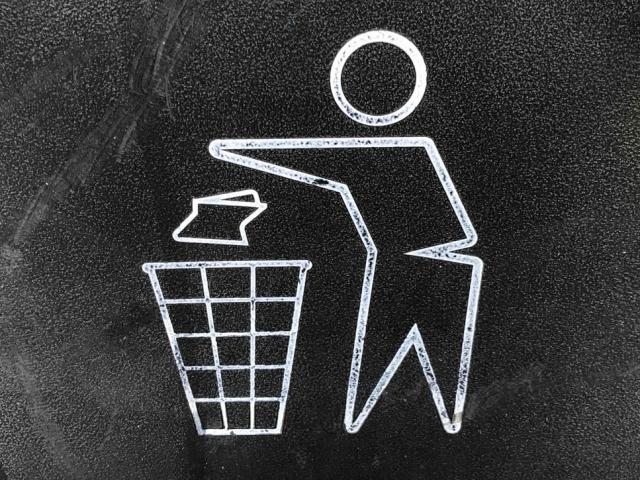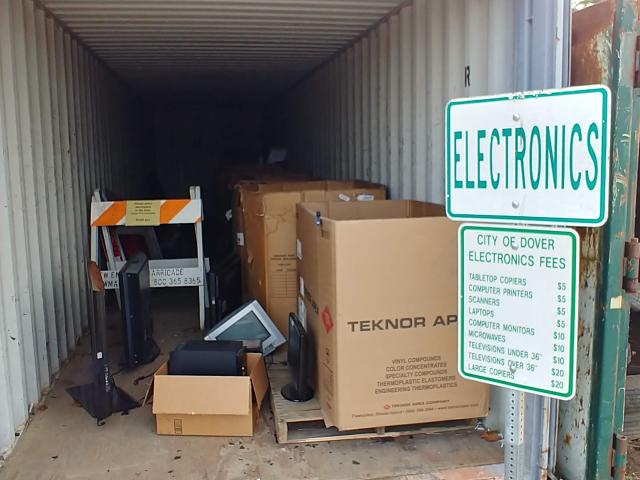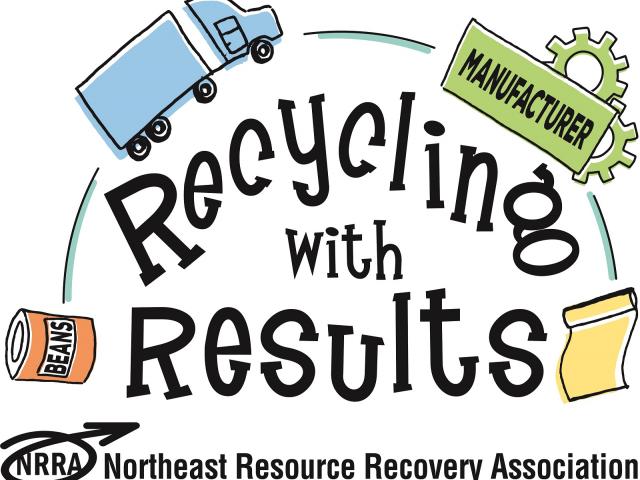Pay As You Throw Toolkit

Pay As You Throw (PAYT) is a waste reduction model where residents pay for the trash - the Municipal Solid Waste (MSW) - they produce.
PAYT is also known as "unit-based pricing." Customers (residents or visitors) pay for the amount of waste they generate, versus a "flat rate" program where everyone pays the same amount no matter how much - or how little - waste they create.
PAYT has been shown to decrease MSW and increase recycling, as residents do not have to pay to recycle.
In this Pay As You Throw Toolkit, you will find the basics for PAYT, a printable resource, several resource links for operators, helpful articles to share with residents, and case studies.
Need help or have a question? Reach out to our Member Services team by email or by calling: 603-736-4401
Key Takeaway: Using a Pay As You Throw fee structure can be a cost-effective way to increase recycling while diverting municipal solid waste.
WHAT TO DO
When implementing a PAYT system, there are some important considerations:
- PICK A PROGRAM: There are several PAYT options that may work for your community
- Bag Program, where residents cover the cost of their MSW services by purchasing specific town bags to be used for their trash.
- Punch-card system - residents purchase a punch card and get one punch per bag of trash thrown.
- Sticker or Tag system - residents attach pre-paid stickers or tags to each bag of trash they thrown.
- Weight-based system - residents pay a fee based on the weight of their MSW.
- Cart or Can system - for those with curbside pick-up, residents are charged based on the size of their container (eg. 35 gallon, 65 gallon, or 95 gallon cart)
- EDUCATE: including your town officials (Select Board), town administrator, director of public works, and of course, your residents and other community members!
- Folks need to know WHAT program you are implementing, HOW it works, and WHY it's important.
- Education needs to start EARLY. Aim for at least 6 months to a year prior to program implementation.
- BUDGET: prior to starting a new PAYT program, create a separate PAYT budget. This will help capture and track the costs and revenues specific to the program. You will also want to decide what costs your PAYT program will include. Will it cover all costs associated with collection and disposal of MSW and recyclables? Or just a portion of those costs? Only tipping fees? Transportation? Labor costs? Additionally, you need to include estimates for the total waste once PAYT is established, start-up and on-going costs, and an estimate for the per container price needed to meet program costs.
- POLICY: beyond creating your community's PAYT program plan - the who, what, where, and how it will work - there are additional policy considerations. How will you accommodate low-income, physically handicapped, and elderly residents? How will you accommodate residents of multi-family units?
- PUT IT TO THE VOTERS: to implement a new PAYT program, you must have town support. Create a warrant article for the annual meeting to adopt PAYT. This should be the final step and, once complete, you're ready to begin your new PAYT program!
PAYT RESOURCES FOR OPERATORS
PRESENTATIONS
- Pay As You Throw Implementation Strategies: This presentation by NERC gives a comprehensive overview on starting a PAYT system at your transfer station or as part of your waste collection strategy.
- Pay As You Throw NRRA Presentation: This presentation was put together by Dennis Patnoe of Lancaster, NH who shares his experience of successfully launching a PAYT program in 1999, which continues to this day.
- Success with Pay As You Throw: DSM Environmental Services took a look at the implementation and success of PAYT in a series of cities including Concord, NH; Boston, MA; and Middletown, RI.
- Pay As You Throw (PAYT) Lakes Region Solid Waste Roundtable: This presentation provides a solid overview of PAYT versus flat-rate waste disposal, pros and cons of a PAYT program, and case studies.
- Increasing Waste Diversion - Beyond Recycling: This NRRA presentation covers a variety of waste diversion strategies, including Pay As You Throw (starting at slide 48).
- Pay As You Throw Town Presentation: This is an example of a presentation created by the Lee Solid Waste Committee to the Select Board regarding the possible implementation of a PAYT program.
HANDS-ON RESOURCES
- PAYT Task Force Workbook: Are you a municipality or committee tasked with setting up PAYT in your community? This workbook designed by the Connecticut Department of Environmental Protection will help walk you through the important considerations!
- Municipal Solid Waste Reduction Handbook for New Hampshire: This comprehensive handbook covers a wide range of waste reduction and diversion solutions, including the economic benefits and implementation of a PAYT program.
- SMART BET Calculator (EPA): SMART BET (Saving Money and Reducing Trash Benefit Evaluation Tool) is designed to help community waste managers decide whether unit-based pricing for solid waste management (also known as Pay-As-You-Throw or PAYT) is the right model for their town or city.
- Pay As You Throw: An Implementation Guide for Solid Waste Unit-Based Pricing Programs: Created by the MassDEP, this guide provides an overview of solid waste unit-based pricing (another name for PAYT). It explains the process of planning, developing, and implementing a PAYT program with emphasis on successful strategies employed by Massachusetts communities.
- PAYT Vendors (NRRA): To help set up a PAYT program or to purchase PAYT bags or resident disposal stickers.
- NH PAYT Towns (NRRA): Includes the town name, population, start date, program management, program type, bag or sticker cost (if applicable), and distribution.
WEBSITES
- Connecticut Department of Energy & Environmental Protection: Save Money and Reduce Trash (SMART) also known as Pay-As-You-Throw (PAYT). This comprehensive resource includes a SMART toolkit and Success Stories.
- Massachusetts Department of Environmental Protection PAYT/SMART: This resource shares the successes and documented savings that MA cities and towns have achieved by implementing PAYT/SMART programs.
- PayAsYouThrow.org is a project of the Recycling Foundation and is supported by forward-thinking organizations that believe in the power of pay-as-you-throw to help cities and towns achieve their municipal waste reduction and recycling goals.
- Cutting Trash in Half: How New Hampshire Towns and Cities Can Secure Their Financial Future with Pay-as-You-Throw: This article from the New Hampshire Municipal Association gives a municipal perspective and makes a case for the financial benefit of a solid PAYT program for municipal budgets.
- Save Money & Reduce Trash (SMART) Toolkit: Created by NEWMOA, this toolkit includes case studies, outreach materials, and additional workshop presentations.
- Pay As You Throw EPA Information Page
ARTICLES FOR RESIDENTS
- Pay as you throw...the debate goes on and on... (NERC blog)
- The Pay As You Throw Solution (NERC blog)
- PAYT Paves Way to Zero Waste (BioCycle)
CASE STUDIES

NRRA RESOURCES
The following resources have been created by NRRA in regards to Pay As You Throw. This is a dynamic and up-to-date listing of all PAYT-related resources.

October 30, 2020
Document


